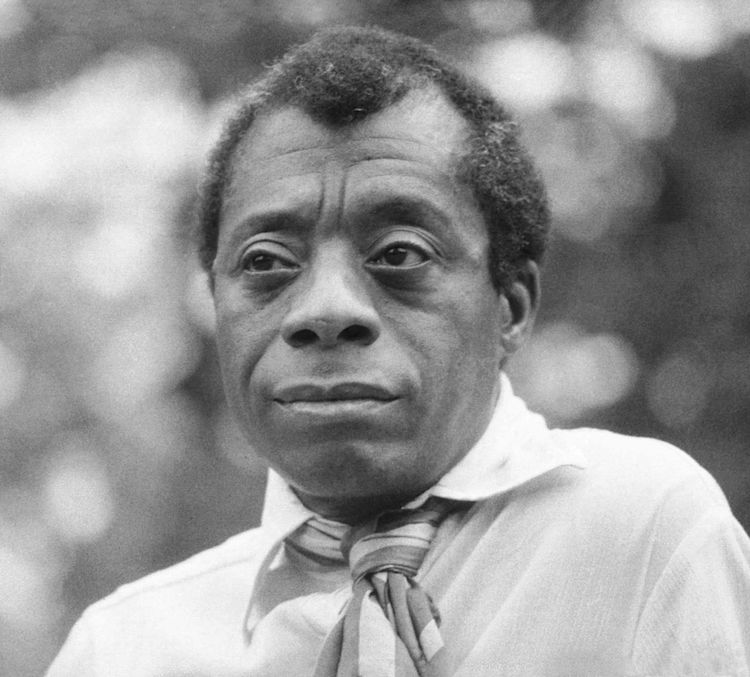By A.D. McKenzie
PARIS – He wrote fiery novels and essays that decried injustice and racism, and now nearly 30 years after his death, Paris is hosting a conference dedicated to the “expatriate” African-American writer James Baldwin.
The May 26-28 event, titled “A Language to Dwell In”: James Baldwin, Paris, and International Visions, has attracted some 230 scholars and artists, who will examine Baldwin’s legacy and global impact.
“The most important thing for us is that this is about James Baldwin – about his life, his work and his impact on readers around the world,” says Alice Mikal Craven, a professor at the American University of Paris (AUP) and co-organiser of the conference with her colleague William Dow.
“Baldwin is an academic subject matter, but at the same time he had and continues to have a great impact on people’s lives,” Craven added in an interview at a Parisian café, close to where the writer spent some of his time during his many years in France.
The author of novels including “Go Tell it on the Mountain”, “Giovanni’s Room” and “Another Country”, Baldwin was a prolific writer and activist who also produced searing essays, plays and poetry about racism and the effects of inequality.
Born in 1924 in New York, he had a tough childhood as the stepson of a harsh Harlem preacher, and he experienced racial discrimination first-hand growing up in the city.
He became a preacher himself in his teens, but then was disillusioned with religion and finally found his calling as a writer. After a difficult adolescence, during which he realised he was gay, he left the United States and moved to France in the late 1940s.
In Paris, he made friends with other exiled or expatriate writers and artists, produced world-class literature and remained actively engaged in African Americans’ struggle for equality.
He also spent time in other cities such as Istanbul, but returned “home” to America several times to take part in civil-rights marches, and through speeches and interviews he condemned the racial situation of the time.
“Paris had a big impact on his writing and on his life,” says Craven. “Paradoxically, it made him want to reject the United States but also go back and help. He was less constrained in Paris than in the United States.”
Craven – a white professor who grew up in the southern state of North Carolina – said she was 12 or 13 years old when she first read Baldwin’s books and felt supported in her own discomfort at what she saw around her.
“The books spoke to me because I was from the South and unhappy with things as they were, and upset at hearing from adults around me that what I was witnessing was the way things should be,” she said in the interview.
According to its stated aims, the conference “hopes to be an international point of intersection for all those interested in Baldwin’s writing, from literary and cultural critics, to political activists, poets, musicians, publishers and historians.”
The numerous scheduled presentations, from a roster of renowned experts, will take place at AUP and at other venues in the city. They include debates about Baldwin and his relationship with “Art, race and Black Power”; an examination of his short stories; a look at how his work is taught today; and how his writing ties into the “Black Lives Matter” movement – which has been sparked by cases of police killings of African Americans in the United States.
Baldwin’s writing on homosexuality, and later gay rights, will also be the subject of discussion in a panel titled “Sexuality, Homophobic Masculinity and Sexual Paradoxes”, while his links with the church will feature in “Baldwin, Religion and Black Liberation Theologies”.
Artists form a key component of the conference, which equally explores the “responsibility of the artist in contemporary society”. Here, artist-scholars and performers such as Abby Dobson, Kendra Ross, Jessica Care Moore and Imani Uzuri will put forward their views about their own activism through the arts.
Also up for debate is the issue of who has the right to tell whose story – a question that Baldwin perhaps transcended – with stories that reach across racial, national and gender lines.
The France-based “Collectif James Baldwin” (founded by French-Caribbean theatre director Samuel Légitimus) will stage a performance, for instance, at the iconic American Church in Paris, the site where some civil rights marches wound up in France during the 1960s.
Gladys Arnaud, a Martinique-born actress and member of the Collectif, will read a monologue from Baldwin’s 1954 play “The Amen Corner”, and she says that the author’s work has particular significance for her both as an actor and as an individual.
“For me, James Baldwin represents tolerance,” she said in an interview. “He was a great humanist, and he helped me to realise that you shouldn’t accept things as they are but try to understand how you can effect change, without letting yourself be overcome by anger and bitterness.”
She added that through acting in plays that Baldwin wrote, her comprehension of character complexity has also deepened, because no one is ever “fully a saint or a demon – you can be both right and wrong as a character”.
Baldwin’s legacy, she said, is the idea that we should all “accept one another, in spite of our differences”.
Note: This article is published in agreement with SWAN – Southern World Arts News – an online cultural magazine devoted to the arts of the global South, and is being reproduced by arrangement with the writer. Follow her on Twitter @mckenzie_ale [International Press Syndicate – 24 May 2016]
Follow A.D. McKenzie on Twitter
IDN is flagship agency of the International Press Syndicate.
Photo: James Baldwin taken Hyde Park, London by Allen Waren on 1 January 1969. Source; Wikimedia Commons
2016 IDN-InDepthNews | Analysis That Matters
Send your comment | Subscribe to IDN newsletter
Follow us on Twitter and Facebook:
http://twitter.com/InDepthNews
http://www.facebook.com/IDN.GoingDeeper

